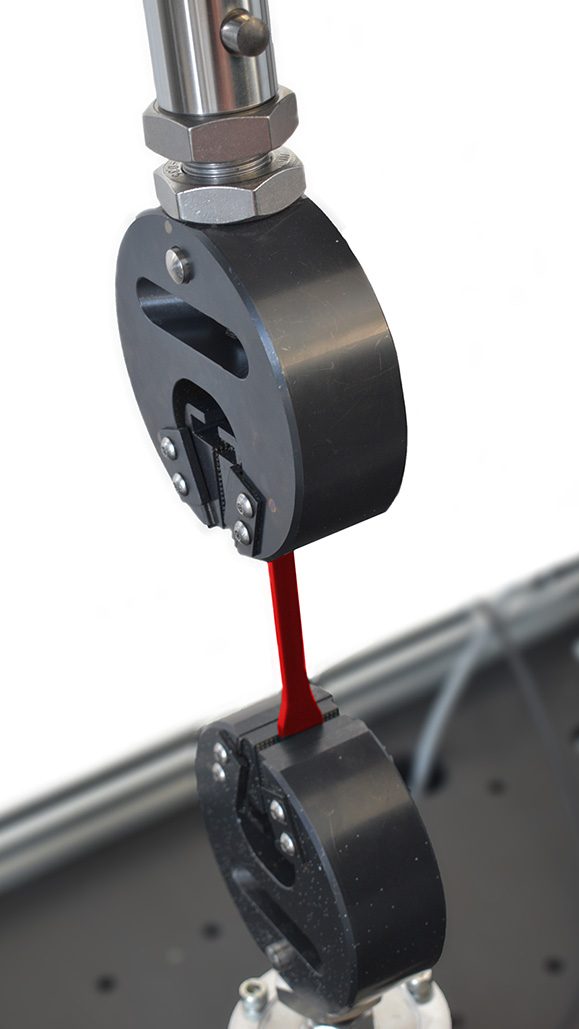At STEP Lab, we specialize in manufacturing systems for metallic material testing in strict adherence to global standards and regulations, including ISO 6892.
WHAT IS ISO 6892?
The ISO 6892 standard is an internationally recognized technical specification that holds paramount importance in the fields of materials engineering and manufacturing industries. This standard establishes guidelines and requirements for conducting tensile tests on samples of metallic materials to determine their mechanical properties. The mechanical properties of metallic materials, such as tensile strength, yield strength, elongation, and reduction of area, are crucial for assessing their suitability for specific applications and ensuring their safety and reliability.
ISO 6892: OBJECTIVES
The primary objective of the ISO 6892 standard is to provide a standardized methodology for conducting tensile tests on metallic materials. This international standard ensures that tests are performed consistently and repeatably in laboratories worldwide. The key objectives of the standard include:
- Assessment of Mechanical Properties: The ISO 6892 standard allows for the determination of fundamental mechanical properties of metallic materials, including tensile strength (representing the maximum resistance of a material to a tensile force) and yield strength (indicating the stress at which the material begins to deform plastically).
- Quality Control: The use of ISO 6892 aids industries in ensuring the quality of their metallic materials, ensuring they meet specific quality standards and are suitable for their intended applications.
- Design and Safety: Engineers use data obtained from tensile tests to safely design components and structures, taking into account the mechanical properties of the material used.
ISO 6892: PART 1
ISO 6892: Part 1 is a crucial standard for testing metallic materials at room temperature. It provides guidelines to evaluate mechanical properties like tensile strength and modulus of elasticity by applying controlled forces until specimens break. The standard emphasizes testing within a specific temperature range (10°C to 35°C) for consistent results and requires assessing the impact of environmental conditions outside this range. It helps manufacturers, researchers, and quality control professionals confidently assess metallic materials’ performance for safe use in various applications.
ISO 6892: PART 2
ISO 6892: Part 2 provides guidelines for conducting tensile tests on metallic materials at elevated temperatures above 35°C. It addresses the impact of testing speed on mechanical properties, emphasizing slower strain rates, with allowances for higher rates in specific cases for comparisons with room temperature results. Safety is crucial, and users must establish appropriate measures to ensure safe and accurate testing under elevated temperature conditions.
ISO 6892: PRACTICAL APPLICATIONS
The ISO 6892 standard has a wide range of practical applications across various industrial sectors, including:
- Automotive Industry: It contributes to the assessment of materials used in critical automotive components such as chassis, bodies, and suspension systems.
- Aerospace: It plays a crucial role in ensuring the safety and reliability of materials used in aircraft.
- Civil Engineering: It helps ensure the stability and safety of structures such as bridges, skyscrapers, and civil infrastructure.
- Medical Device Manufacturing: It ensures the compliance of materials used in medical device manufacturing with safety and performance standards.
TESTING MACHINES FOR ISO 6892
To successfully conduct tensile tests in compliance with the ISO 6892 standard, it is essential to employ an appropriate tensile testing machine. Our EA dynamic and fatigue testing machine is a versatile solution for conducting tests that require high accuracy and speed in both force and position control.
-
- Dynamic loads range up to 200kN.
- Zero maintenance and easy installation.
- Low energy consuming.
- Highly reliable test.




